Transform your project planning today with our free, customizable Project Management Checklist Templates, designed to help you stay organized, focused, and on track, no matter the project size or complexity.
Managing a project can feel overwhelming without the right tools in place. From setting clear goals to tracking progress and ensuring successful delivery, every step requires structure and organization. That’s where our free Project Management Checklist Templates come in. Designed for Microsoft Word, these easy-to-edit and printable checklists cover every stage of a project—from initiation and planning to execution and closure—helping you stay on track, save time, and boost team efficiency. Download, customize, and use them instantly to make project management simpler and stress-free.
Don’t let tasks pile up or important details slip through the cracks. Our free Project Management Checklist Templates are designed to save you time, keep your team aligned, and help you deliver projects successfully. Download, customize, and start using them today—because organized projects lead to better results.
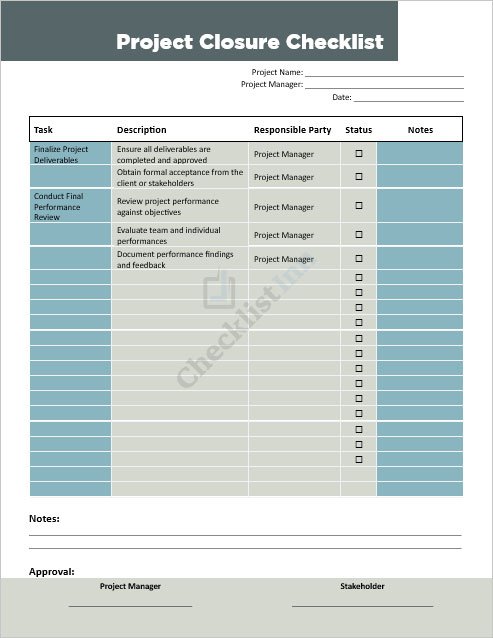
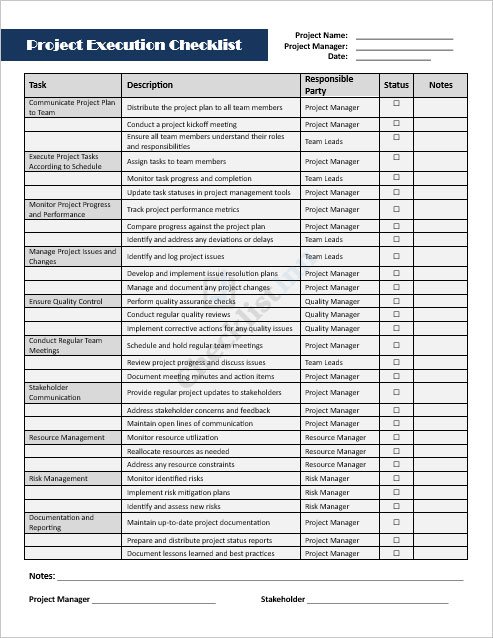
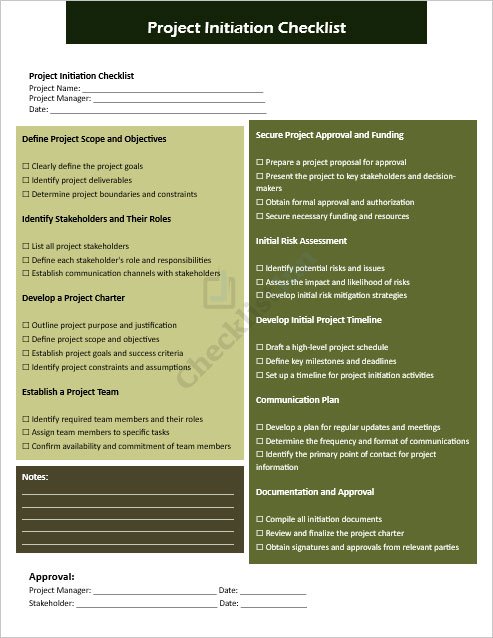
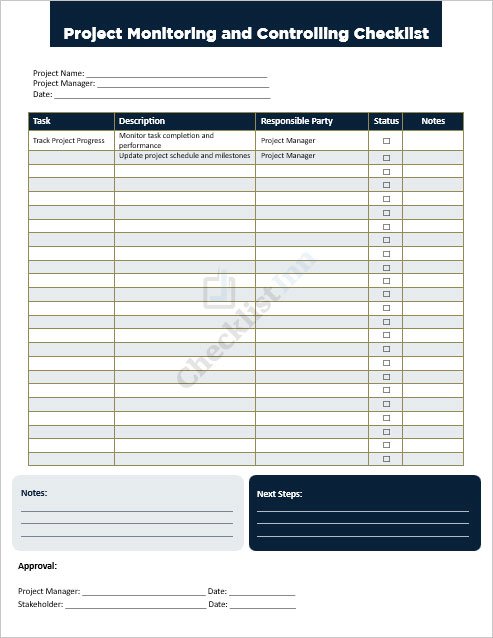
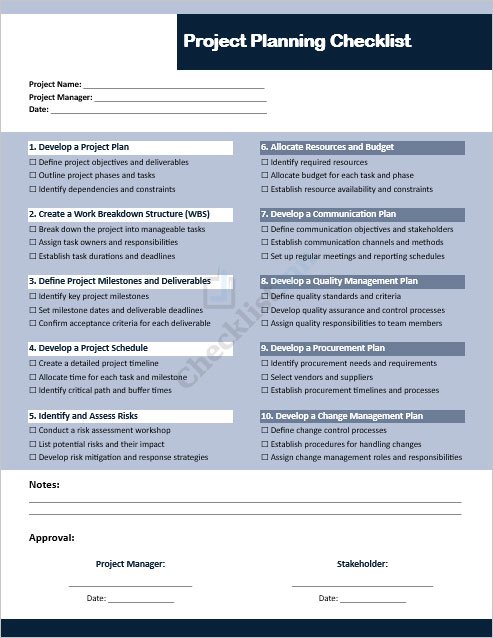
Think of a project management checklist as your project’s personal playbook. It’s a simple yet powerful tool that keeps you on top of every task—from kick-off to final delivery. Instead of juggling endless to-dos in your head, the checklist breaks everything down into clear, manageable steps, so you always know what’s done and what still needs attention. Whether you’re leading a team or managing things solo, a project management checklist makes sure nothing slips through the cracks.
And the best part? You don’t have to create one from scratch. Our free Project Management Checklist Templates in MS Word are ready to download, edit, and use right away. Just grab the template you need, tailor it to your project, and you’re all set to plan with confidence and finish strong.

Checklists aren’t just lists—they’re powerful tools that bring clarity and control to your projects. Here’s why they make such a difference:
In short, a project management checklist is like having a reliable partner by your side. It helps you plan smarter, work faster, and deliver better results—every single time.
By mastering these essential elements, you can create comprehensive project management checklists that help you stay organized, meet deadlines, and deliver successful projects.

A project management checklist is a structured to-do list that outlines key tasks, milestones, and deliverables across all project phases. It helps ensure nothing gets overlooked and keeps your team aligned.
Yes! All our project management checklist templates are completely free. You can download them in MS Word format, customize them to your needs, and start using them right away.
Absolutely. The templates are flexible and can be tailored for any project management approach, whether Agile, Waterfall, or a hybrid model.
While the templates are designed for Word, you can also open and edit them in Google Docs, making them accessible on any device.
Project managers, team leads, freelancers, and even students can use these checklists to stay organized, meet deadlines, and achieve project goals more efficiently.